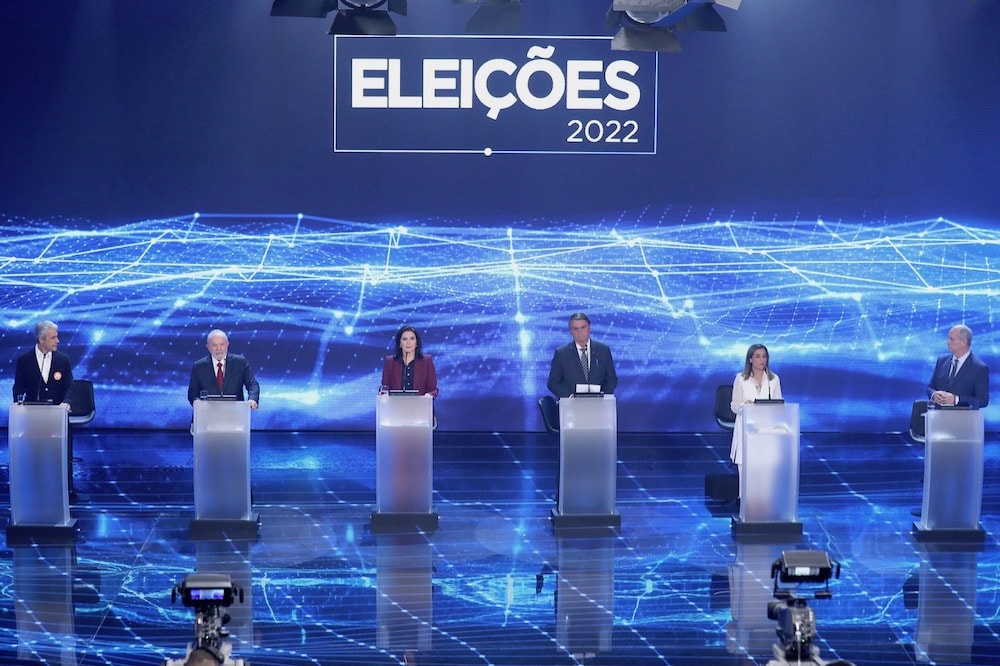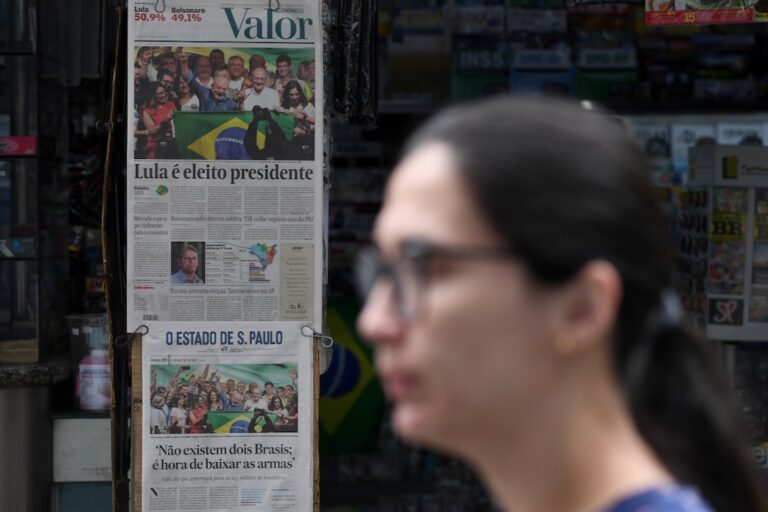For a legitimate and free election process to occur, it is essential to strengthen democratic principles, which include guaranteeing fundamental freedoms and providing a suitable environment for independent media to disseminate quality information and thus contribute to an informed vote.
This is an excerpt of a report originally published on artigo19.org on 11 August 2022.
Laws, court decisions, and police repression are used to deny the rights to freedom of expression, demonstration, and access to information, adversely affecting the exercise of democracy
The 2022 presidential and congressional elections in Brazil take place in a scenario deeply marked by attacks on freedom of expression and demonstration, and on the right of access to information. These attacks manifest themselves in the abusive use of laws by the federal government in order to restrict journalists, communicators, and political opponents, as well as in court decisions and police repression used to curb demonstrations in public spaces. There are also attacks on the Law of Access to Information (LAI 12,527/2011) and disinformation campaigns orchestrated by authorities. All these factors can negatively affect the exercise of democracy and the preservation of democratic institutions.
For a legitimate and free election process to occur, it is essential to strengthen democratic principles, which include guaranteeing fundamental freedoms and providing a suitable environment for independent media to disseminate quality information and thus contribute to an informed vote. “It is impossible to enforce human rights without access to qualified information. This prevents voters from making conscious decisions and from exercising social control over the public administration and candidacies”, says Júlia Rocha, coordinator of the Access to Information area of ARTICLE 19 Brazil and South America.
For voters, it is equally important to know the transparency mechanisms and technologies involved in elections. This ensures their legitimacy, the respect to their results, and the preservation of democracy. It isn’t a coincidence that these are precisely the targets of the campaigns that spread fake news on social networks and messaging apps.
Where are we?
Some data help situate Brazil in relation to the threats and loss of rights that jeopardize democracy. One of them is the Global Expression Report (GxR), an ARTICLE 19 International annual publication that compiles information from several countries on how they guarantee the right of their population to express their opinions without fear of censorship or attacks by government and private actors. The data used is from the Varieties of Democracy Institute (V-Dem), an independent research institute from the University of Gothenburg (Sweden), consisted of social scientists on every continent.
In 2022, Brazil is ranked 89th among 161 countries, and is now considered a nation of restricted liberties, dropping 58 positions between 2015 and 2021. The decline became sharper after 2018: GxR highlights that the violations of freedom of expression increase in the election period. In 2020, 16% of the cases were concentrated in October, that is, 15 events out of a total of 42.
However, when we look at South America as a whole, good examples of preserving fundamental freedoms come from Chile – currently in the 29th position in the world ranking and among the best ranked South American countries, second only to Uruguay (21st) and Argentina (23rd). Chile has recently experienced presidential and legislative elections, along with discussions about drafting a new constitution that promises advances in the fields of freedom of expression and digital rights. All these processes have been permeated by fake news and are monitored by organizations such as Derechos Digitales, which investigates disinformation campaigns in the current constituent process. We interviewed the organization’s advocacy director, Vladimir Garay, about these decisive moments of the country’s recent history. The conversation is available from page 48.
Disinformation campaigns: new technologies, new challenges
Society is more experienced on how to deal with fake news during elections. However, there are new challenges, like the emerging malicious technologies and the lack of a legislative framework that holds disinformation agents accountable
The use of technology to spread disinformation campaigns in the elections is hardly new, but social networks and messaging apps have accelerated and expanded the phenomenon. “The 2018 presidential election marked the peak of fake news campaigns orchestrated by organized groups with specific political and economic interests.



